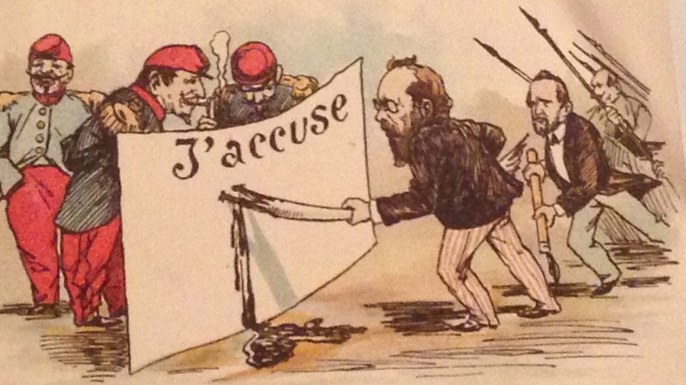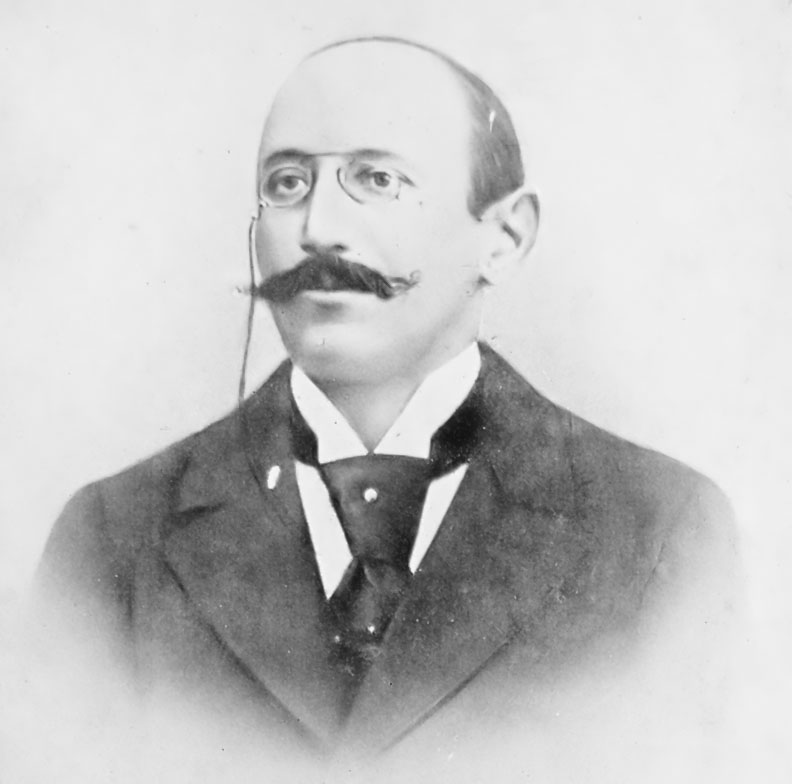Imagine a trial rocking a nation: accusations of collusion with a hated enemy, wealthy and influential elites taking sides, an entire country riveted by headlines. The trial would fundamentally alter the country; both changing how citizens viewed each other, the military and other national institutions.
No, this is not related to the current investigation into President Trump’s alleged ties. While the Dreyfus Affair, as it would become known, happened more than a century ago, there are more than a few passing similarities between the events of today and those from the 1890’s.
In 1894, a young army officer, Alfred Dreyfus, was accused of selling military plans to France’s mortal enemy, Germany. In a highly publicized trial, Dreyfus was convicted of treason and sentenced to life on Devil’s Island, France’s military prison island in the Caribbean. Soon after Dreyfus’ family began appealing the decision. The case split the country; conservative pro-army factions clashed openly with intellectual pro-republican leaders. In January 1898, Émile Zola published J’accuse…!, a rallying cry of support exonerating Dreyfus. Eventually cleared of his treason conviction, Dreyfus was instead sentenced to a 10 years hard labor, although that too was commuted. It wasn’t until 1906 that Dreyfus was officially cleared of his conviction.

The events of the Dreyfus Affair were seen as a test for the French Third Republic – freeing Dreyfus was seen as essential for its survival and the continuation of its ideals. It also exposed ugly realities of French society; anti-Semitic rallies were held across the country due to Dreyfus’ Jewish heritage. Anti-Semitism had been growing in France for decades, especially among the military. The Dreyfus Affair would lead Austrian journalist Theodor Herzl, the father of modern Zionism, to abandon the hope for integration of Jews in European societies and call for the establishment of a Jewish homeland in Israel.
The Dreyfus Affair highlighted a disconnect between the ideals of a nation and the beliefs of its citizens. Is it really so different in the United States? The troubling events in Charlottesville over the summer, the rise in anti-Semitic propaganda across our colleges and even the rhetoric of our President harken back to French society of 120 years ago. Coupled with allegations of collusion with the Russian government, the political climate of today should already have us looking back at the forgotten Dreyfus Affairs.

The similarities between the Dreyfus Affair and today’s political sagas should be apparent: the same divide between liberal and conservative elements exist, the suspicions of foreign corruption and the questions of the state’s survivability are as eerily present today as they were more than a century ago. However, it’s the social impacts of today’s events that should raise the most red flags. The Dreyfus Affair brought long held anti-Semitic public sentiment to the surface, forever altering both French and global history, strengthened by a conservative, nationalist movement. Today, the rise of the Alt Right in the U.S. has made it clear that anti-Semitism, racism and xenophobia are alive and well, empowered by an administration that responds to these groups with the lightest of touches.
While the Dreyfus Affair can be seen as a victory for the French state, the same cannot be said for the idea of assimilation for its Jews. When Herzl launched the Zionist movement, it officially rejected the notion that Jews could live peacefully in Europe next to their non-Jewish neighbors. A century later, can anti-Semitism be overcome? As Adam Gopnik writes, the Dreyfus Affair can be seen as the rejection of a cosmopolitan citizenship, but in a country that prides itself on being a melting pot, can the U.S. learn anything from an obscure French event?
Joe Eggers is a Research Associate with the Center for Holocaust and Genocide Studies. He is a 2016 graduate of the University of Minnesota, with a master’s thesis that explores cultural genocide in indigenous residential schools.

Comments